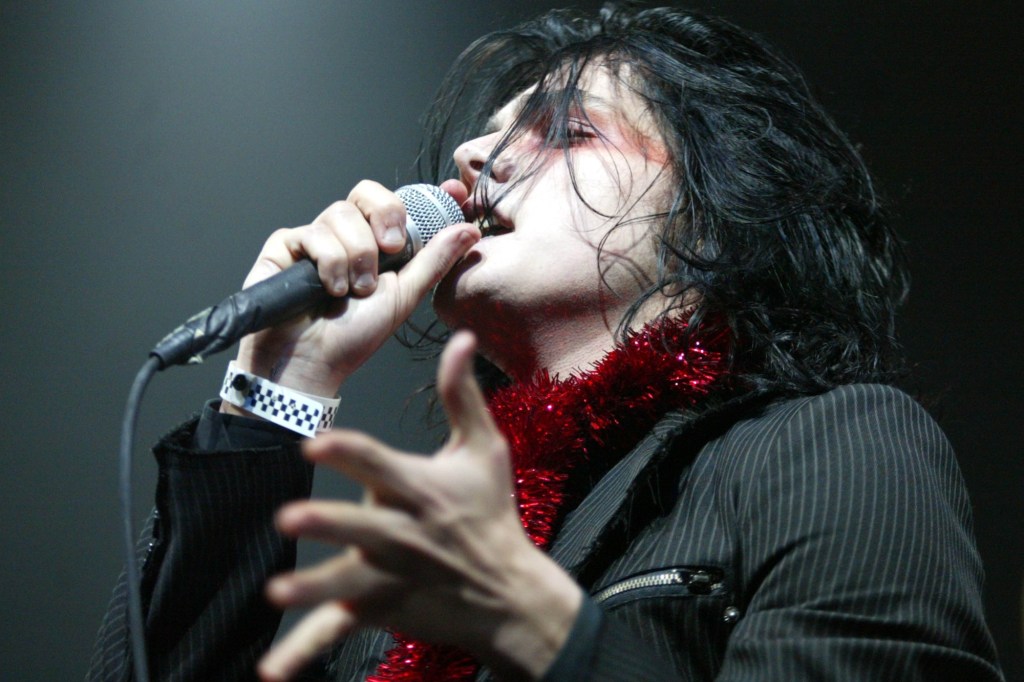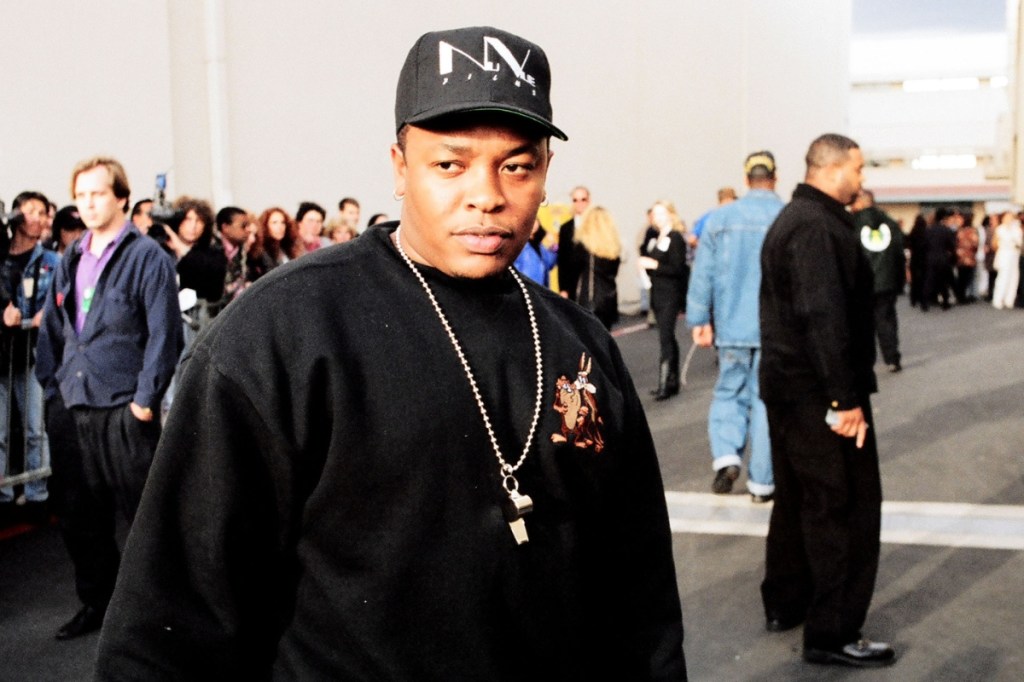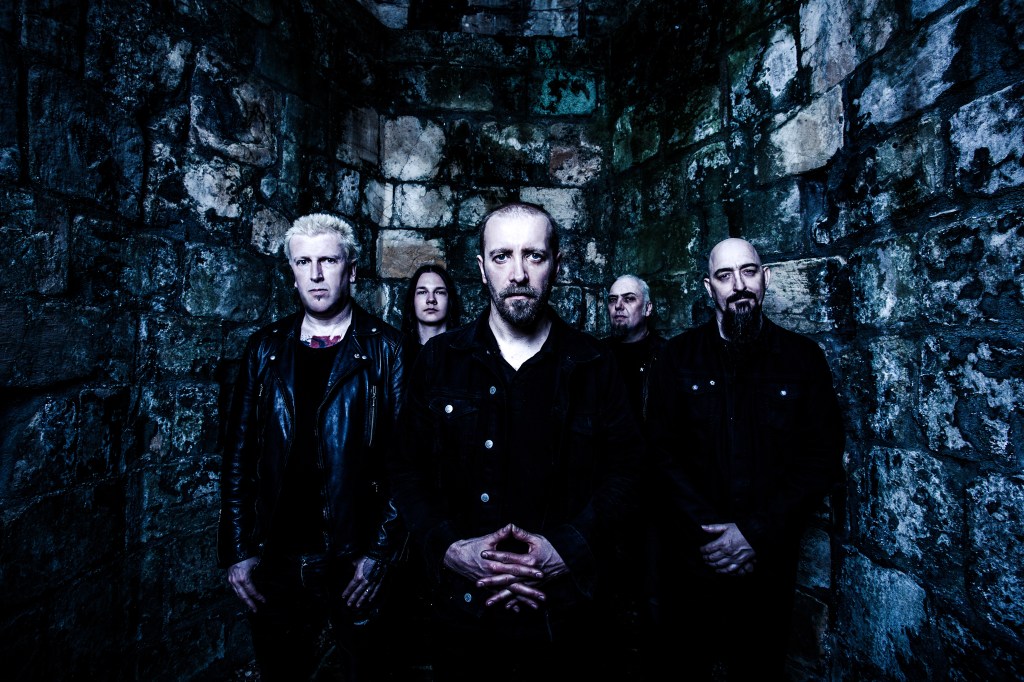For the majority of their long, preternaturally stable career, UK doom legends Paradise Lost have enjoyed the kind of steady, slow-burning success that most bands half their age would kill for. The band formed way back in 1988, and soon became one of the most important British doom bands since Black Sabbath, rounding out the so-called “Peaceville Three” alongside Katatonia and Anathema. As the years marched on, their moody anthems created a die-hard fanbase (affectionately referred to by the band as “The Painless”), and at their commercial height, they were once proclaimed to be the U.K.’s answer to Metallica.
However, a string of lackluster mid-period albums left many questioning whether these hoary old veterans could still deliver an album that would meet any of their previous successes. The band hinted of a return to their old school sound with their previous two albums, Tragic Idol and The Plague Within, the latter of which saw vocalist Nick Holmes bring back the rumbling growl fans had been missing since the early 90s. The album seemed to cherry-pick the best moments from their mid-90s career and carefully mix them together, revitalizing their sound for a newer generation. Now, with their latest effort, Medusa, it sounds as though the band has officially come full circle. Within the first three tracks, the band silences any doubters who thought they couldn’t go heavier than their previous album.
Videos by VICE
Almost 30 years in, Paradise Lost is still doing what they do best: dishing out classically-minded UK doom with slow, heavily distorted guitars that pay homage to Type O Negative and Celtic Frost, and melancholic vocals that alternate between a forceful growl and a despondent croon. Now as ever, Paradise Lost is a treat for those who like their music tuned low and played slow.
I had the pleasure to sit down with Paradise Lost vocalist Nick Holmes to talk a little bit about the journey. For a man whose band has built a career on the darker side of life, he was extremely warm and open to even my toughest questions.
Noisey: Over the years, commercially successful bands like Lacuna Coil, H.I.M., and Nightwish have all cited Paradise Lost as an influence, yet it seems as though Paradise Lost themselves almost never gets credit for the integral part you’ve played in the genesis of the gothic metal sound.
Nick Holmes: Well, those bands have been around for a very long time as well, so they are very successful bands as well. It was the same with us as far as bands like Candlemass and Death—they were a few years above us in age, and we cited them as influence. I guess it’s the generational thing that comes into it a little bit, because we were a few years older, but I mean, it’s flattering to see bands citing us an as influence, and then they go on to be really big and successful; Nightwish, for example. I think it’s fantastic that people regard us as an influence.
Now, younger bands like Grave Pleasures, Tribulation, and Drab Majesty are all making waves with their efforts to bring back the gloomy sounds of 80s goth rock. What’s your take on these fellow appreciators of morose music?
With the original gothic scene, it was pretty small and The Sisters Of Mercy took it as as far as it ever went, I think. I think they were playing arenas at one point in the UK and in Europe. It never really got any bigger than The Sisters of Mercy, y’know. It was a time before digital music. It was a lot harder then; it costs a lot of money to buy instruments. It wasn’t as big of a thing, and those bands still remain the classic bands. I guess it’s just like I said, a newer generation going back, getting back into it again, bouncing off the backs of bands I was listening to back then.

You’ve played around with a variety of different sounds—death metal in your early years, the doom/gothic metal sound that you helped elevate in the 90s, experimental electronic music—and have now returned to that early 90s sound. What prompted this return to your roots?
It’s slowly happened over a period of time. On [2015’s The Plague Within], we did a song called “Beneath Broken Earth” and it was very similar to the new material and new album. We found ourselves writing an old style doom song, and really enjoying writing like that again. It’s something we haven’t done to that extent for a long, long time, many many years—a lifetime to some people. The new album is very much like a very, very late 80s Paradise Lost sound to a degree. Nothing happens overnight with Paradise Lost, so it was a gradual movement to the next thing. After 30 years, I guess you can see some movement and some change in a band that’s been around that long.
You’ve maintained an almost entirely original lineup for nearly 30 years. How have you pulled that off for so long?
When we started the band as friends, we were into the type of music that had limited and minimal appeal. There were a few guys in each town that liked that kind of music. Death metal was very regarded as just a noise to most people. Even Metallica were still in their infancy as far as their success going, so anybody that was into the extreme music, they always pulled together. We were very much those guys in the town, and that’s how we started the band. We became friends, and we laugh at the same things, we have the same sense of humor, and I guess it’s what’s keeps us together, y’know? Ironically the music is pretty miserable but as human beings, we still have fun on the road, and we really haven’t had to grow up in the band. We can still act like kids and have a laugh.
During the period of the late 90s to the mid 2000’s, the longest standing members of the band said that they had no interest in going back to how they sounded in the early 90s. Guitarist Greg McKintosh started doing Vallenfyre in 2011 while you did vocals for Sweden’s Bloodbath, and both of these straightforward death metal projects happened right before you released The Plague Within in 2015. Did doing those side-projects have an effect on your new material
Yeah, when we got around the late 90s, we kind of thought we had taken the band as far as we could with the heavy sound. But I mean, you’re talking 30 years; sometimes things feel right at the time, and you change your mind a year later. It’s human nature. Regarding doing Bloodbath and Vallenfyre, yeah I do think it’s had a positive effect on Paradise Lost’s music. I know that Greg McKintosh got very much back into the death metal scene about five or six years ago, and that’s always been very beneficial to the band because the music starts when he starts writing, basically.
Speaking of your mid- to late-90s material, your trio of synth/pop albums One Second, Host, and Believe In Nothing caught you a lot of flak from your fan base. Seeing how you’ve previously gone back and re-recorded some songs off your first album, Lost Paradise, are you planning to revisit any of the songs from that specific time period that left some fans scratching their heads?
Not necessarily. But I mean, that period with the band is still a very much important part of the life of the band, and I certainly don’t regret it. It caused a lot of controversy and people were kind of split down the middle on the material, but I do think Host and One Second have some of the best songs we’ve ever written as a band. We just didn’t really sound like a metal band anymore [laughs]. In hindsight, maybe doing them as a side project might have been a good idea; it was a lot to take in in such a short period of time for lots of people. But everything you do takes you to the next step, I guess. Re-recording it wouldn’t be out of the question, but it would be something that we would look at if we had a period where we weren’t working hard. Especially the Host album, I think there’s some really great songs on there. Usually when you do an album you literally just don’t stop for two years. So who knows? You can never say never, because you change your mind all the time.
This past year, Paradise Lost went to Roadburn and played your seminal 1992 album Gothic in its entirety. How did it feel to play some of the songs from that album that have never been played live before?
It was brilliant. We did the Draconian Times full album tour as well, and it was two things we didn’t want to do, but our manager mentioned that it was a good idea. At the time we were like ‘Oh no, no, no. We definitely do not want do it.’ But yeah, doing the Gothic album took us right back to doing the whole shitty little night clubs in Europe in the early 90s and the late 80s. It was good to do, and the visual concept behind us as so well done. There was only a couple of songs that we never actually played live off that album, but it took us back and made us think about doing heavy music again. I’m sure it did subconsciously, y’know?
Paradise Lost seldom plays Stateside; after a long gap, you last performed at Maryland Deathfest in 2016 and at the 7,000 Tons Of Metal cruise afterwards. Is there a reason you don’t focus on touring the U.S. and do you see any type of U.S. tour in the future?
The only reason nowadays is that it’s incredibly expensive to do it. It’s just that the last ten years has become difficult for bands like ourselves to get over there and do it, and it’s not just about breaking even, it’s also about losing a lot of money. It can be risky to do it. We toured with Morbid Angel in 1993, and we didn’t particularly have a lot of fun on that tour. It kinda put us off from going over there for quite a while, and I don’t regret that, if I am honest. I do think we should have persevered and come over longer, but since then we absolutely love coming to the States. We would come at the drop of a hat, and we’re there if we’re asked. It’s just really financially tough, especially for a British band to come out and do that. Now that we are on Nuclear Blast, there’s a hell of a lot of American bands on Nuclear Blast, and if we could get on a support tour, we would love to do that.
A musician is first and foremost a fan of music. Are there any particular sounds that you’ve considered but not gotten around to incorporating into your music yet?
Doing a fully symphonic album, like a film soundtrack, that’s something I would like to do. It’s just something that’s incredibly ambitious to do, and to do it well. But it may never happen. When we were younger, I would say to Greg I would like to do something like Dead Can Dance but a death metal version—something that is incredibly symphonic but incredibly dark, y’know? It will probably never happen, but we’ll see.
Most of my questions have talked about all the different sounds and influences that you have managed to build a legacy and a career on. What does the future hold for Paradise Lost?
We never really had a lot of time to become sick of things. After you write the album and you tour, it’s two years that fly by—you never really get time to get sit down. Once you get finished on the road, it’s nice to have time off, but when you get time off, you feel like writing different music then because you’ve been playing the same songs for the past 18 months. You never have, say, five years where you’ve sat around doing nothing. Deadlines are not a bad thing, and it keeps you on your toes. The last, probably ten years especially or so have been like that. We’ve never really stopped.
More
From VICE
-

Daniel Boczarski/Redferns/Getty Images -

(Photo by Matthew Simmons/Getty Images) -

(Photos via Aaron Foster; Buda Mendes/Getty Images) -

Jeff Kravitz/FilmMagic/Getty Images
